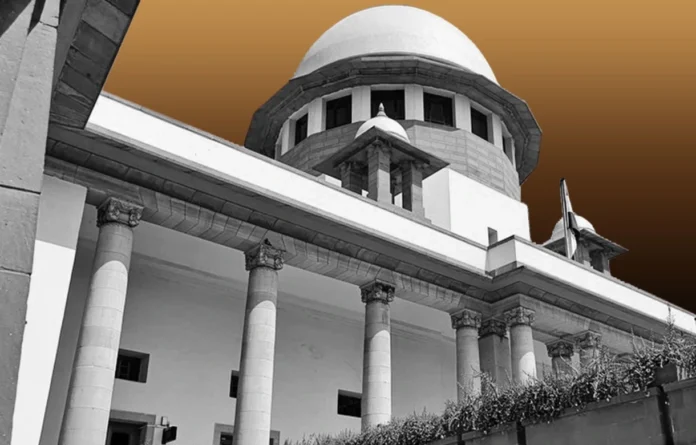In 2024, the judiciary played a critical role in shaping the legal landscape of India, delivering judgments that upheld constitutional values, clarified laws and addressed pressing societal issues. Here is a curated list of the year’s top ten landmark judgments:
No Relief To Bilkis Bano Convicts
Bilkis Yakub Rasool vs Union of India & Ors
Date of judgment: January 8, 2024
Bench: Justices BV Nagarathna and Ujjal Bhuyan
The Supreme Court struck down the Gujarat government’s order to release 11 convicts in the Bilkis Bano case, emphasizing that remission cannot override the rule of law. The bench asserted that such applications must respect judicial independence and adhere to legal protocols. The judgment underscored that since the trial was conducted in Maharashtra, the authority to consider remission lay with the Maharashtra government.
Electoral Bonds Scheme Annulled
Association of Democratic Reforms vs Union of India
Date of judgment: February 15, 2024
Bench: Chief Justice DY Chandrachud and Justices Sanjiv Khanna, BR Gavai, JB Pardiwala and Manoj Misra
The Supreme Court invalidated the 2018 Electoral Bond Scheme, citing its failure to promote transparency in political funding. The bench upheld voters’ rights to know funding sources and mandated public disclosure of related transactions by the Election Commission and State Bank of India. The judgment marked a significant step towards electoral accountability.
Bail For Arvind Kejriwal In Liquor Scam Case
Arvind Kejriwal vs Directorate of Enforcement
Date of judgment: September 13, 2024
Bench: Justices Surya Kant and Ujjal Bhuyan
Granting bail to Delhi Chief Minister Arvind Kejriwal, the Court questioned the timing of his arrest under the Prevention of Money Laundering Act (PMLA). The verdict relaxed stringent bail norms under the PMLA, recognizing long pre-trial incarceration as unjust.
Sub-Categorization Within Scheduled Castes Allowed
State of Punjab vs Davinder Singh
Date of judgment: August 1, 2024
Bench: Chief Justice DY Chandrachud and six other judges
The seven-judge bench, in a 6:1 decision, upheld the validity of sub-classifying Scheduled Castes (SC) for equitable reservation distribution. The judgment emphasized that any such classification must be backed by empirical data and remain subject to judicial review, ensuring substantive equality.
States’ Right To Royalty On Minerals Recognized
Mineral Area Development Authority vs Steel Authority of India
Date of judgment: July 25, 2024
Bench: A nine-judge bench led by Chief Justice DY Chandrachud
The Court affirmed states’ rights to levy royalties on minerals, holding that such royalties are not equivalent to taxes. This verdict overturned a 1989 ruling, strengthening state autonomy in resource management.
Child Pornography Declared A Crime
Just Rights for Children Alliance vs S Harish
Date of judgment: September 24, 2024
Bench: Chief Justice DY Chandrachud and Justices JB Pardiwala and Manoj Misra
The Court criminalized the possession, viewing and distribution of child pornography, aligning with global child protection norms. It directed the government to adopt the term “Child Sexual Exploitation and Abuse Material” (CSEAM) to address the issue comprehensively.
Citizenship Act Section 6A Validated
In re: Section 6A of the Citizenship Act
Date of judgment: October 17, 2024
Bench: Chief Justice DY Chandrachud and four other judges
A five-judge bench upheld the constitutionality of Section 6A, introduced to implement the Assam Accord. In a 4:1 decision, the Court recognized the provision’s role in preserving Assam’s cultural identity while granting citizenship to long-term immigrants.
Private Property And Community Resources Defined
Property Owners Association vs State of Maharashtra
Date of judgment: November 5, 2024
Bench: Chief Justice DY Chandrachud and eight others
The Court clarified that not all private property could be deemed a “material resource of the community”. By balancing wealth redistribution principles with property rights, the judgment reinforced economic democracy.
Minority Status Of AMU Affirmed
Aligarh Muslim University vs Naresh Agarwal
Date of judgment: November 8, 2024
Bench: Chief Justice DY Chandrachud and six others
In a landmark 4:3 decision, the Court upheld Aligarh Muslim University’s minority status, ruling that a minority institution only needs to be established by a minority community, regardless of its current administration.
Guidelines on Bulldozer Demolitions Issued
In Re: Directions in the matter of demolition of structure
Date of judgment: November 13, 2024
Bench: Justices BR Gavai and KV Viswanathan
To curb unlawful demolitions, the Court issued guidelines mandating prior notice and due process before property demolitions. This decision aimed to protect vulnerable groups from arbitrary actions and emphasized the rule of law.
These judgments collectively reflect the judiciary’s commitment to uphold democratic principles, protect individual rights, and ensure justice in diverse spheres of governance and society.
—Compiled by Sanjay Raman Sinha


